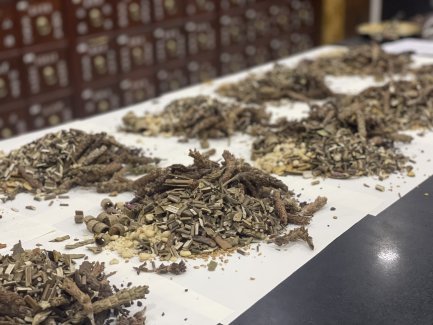Artikkelit

27.03.2024
Role of Traditional Chinese Medicin in international reseach cooperation - thousands of years of experience or recently constructed practices?
Traditional Chinese Medicine (TCM) Institutions continue to expand their international outreach. Universities cooperating with Chinese partners should be aware of the central role of TCM in the Chinese Society and in China’s Developmental Plans as well as of the critical discussions regarding the use of TCM.
Traditional Chinese Medicine (TCM) is comprised of a range of various types of health and healing practices, folk beliefs, herbal remedies, food, dietary and exercise regimes combined with philosophical teachings. Many vocal critics, including published scholars, have criticized the efficacy of TCM, however, some even calling it nothing more than a pseudoscience. According to them, TCM has no basis in modern science, evident in the fact that practitioners rarely agree on what diagnosis and treatments should be used. Proponents have sought to counter these claims by asserting that key features, such as many interactions between various ingredients, remain to be thoroughly researched. Yet, many critics have further pointed out, that in China medical practitioners are strongly encouraged to provide TCM treatments alongside modern drugs, which makes it difficult to examine their efficacy and use, at least outside a laboratory environment.
In addition to the question of efficacy, critics have asserted that TCM is in fact not based on thousands of years of experience, but rather has been quite recently constructed by cherry-picking ideas from traditional healing practices and modern medicine. Environmentalist have also pointed out that the demand for the ingredients used in TCM both in China as well as abroad continues to be a major contributing factor in illegal wildlife poaching and smuggling, while yet others have voiced concerns also about the potential toxicity of some ingredients and how they can potentially also facilitate the spread of zoonotic deceases.
TCM continues to hold a very prominent position in the Chinese society. TCM treatments are readily available throughout the country, and their use continues to be very popular among the general population. Many universities in China are dedicated solely to TCM and many higher education institutes of a more general nature host, for example, specialized departments. Occasionally the institutional affiliations of TCM departments remain somewhat blurry to outsiders. Under the State Council, a specialized office responsible for the administration of the TCM field has been established. Yet, even in China TCM’s position has not always remained unchallenged. In the early 2000s, a heated national debate took place in the country regarding the role of TCM in public healthcare and academia. Yet, in the end, the Chinese government voiced its support to TCM, and has continued to do so ever since. Especially during the Xi Jinping era, TCM’s importance has been elevated considerably. Billions of yuans have been invested in the field, and in 2016 China issued a white paper on TCM calling for “equal status” between TCM and “Western medicine”. Only last year China put out a new national reform plan to boost TCM healthcare services, and TCM training and innovation. In the official Chinese state narrative, TCM even played a crucial role in battling the COVID-19 pandemic. At the time, a draft law was even proposed by the Beijing municipality, which would have criminalized statements critical of TCM.
Western audiences were introduced to TCM in the in the 1970s after the communist government in Beijing had begun to promote the practices as an alternative to “Western” medicine, which at the time was seen as degenerate. Since then, TCM has gained worldwide traction, especially in Southeast Asia. The Chinese government has actively sought to introduce TCM to the rest of the world through its bilateral relations and in multilateral organizations, as well as through educational exchanges. During the COVID-pandemic China sent out TCM supplies and practitioners alongside conventional drugs and equipment abroad. TCM's international profile also rose considerably when WHO formally recognized its use following years of lobbying by China. The decision was widely condemned in the international medical community.
The highly lucrative business side of TCM aside, the Chinese government is also aiming to use TCM as part of its larger soft power charm offensive. As a result, Chinese HEIs affiliated with TCM have cultivated extensive international networks, and they have also been very active in seeking new cooperation opportunities. In addition to this, numerous TCM colleges and universities have been established abroad. However, some have also cut ties with TCM in the past years. For example, in 2023 Royal Melbourne Institute of Technology decided to cancel TCM degree programs, which it had been operating since the 1990s.
Parties cooperating with China in the field of healthcare should be aware of the critical discussions regarding TCM as well as of its role in Chinese higher education institutions and the Chinese society at large.
Text: Olli Suominen, Team Finland Knolwedge expert, Beijing
Photo: TCM pharmacy in Beijing, taken by Janna Laine
